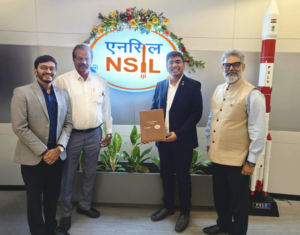A new and controversial policy has been announced for Indian green card holders and other immigration applicants residing in the US. Under this policy proposed by the Trump administration, green card holders will now have to share information about their social media activities with the US Citizenship and Immigration Services (USCIS). This move was previously mandatory for visa applicants living abroad, but now it will also be applied to permanent residents and asylum applicants living legally in the US. Through this policy, the US government is trying to tighten the immigration process further, but it has become a topic of discussion due to its potential effects and criticisms.
In this article, we will know in detail how this policy can affect Indian green card holders, what is the purpose behind it, and what can be its possible consequences.
-
What is the purpose of this new social media policy?
The main objective of this policy is to strengthen identity verification and national security investigations of immigration applicants on social media. The Trump administration issued a notice on March 5, announcing that from now on, green card holders and people involved in other immigration cases will be asked for details of their social media handles and related platforms. The move is to verify the identity of applicants, conduct security checks, and detect potential threats through social media activities.
-
Who will this policy affect?
The policy will no longer be limited to visa applicants living abroad, but it will also reach those who are already residing legally in the US. Specifically, it will affect Indian green card holders who are applying for permanent residency or seeking asylum. Apart from this, people whose asylum application is pending will also be asked to share their social media handles.
-
What is the purpose of this policy?
The Trump administration says that this move has been taken to improve identity verification, national security, and public safety checks. USCIS (US Citizenship and Immigration Services) believes that applicants’ social media handles can be a source of additional information, which can provide important information related to national security. This will help in thoroughly vetting applicants and can detect security threats.
-
How can this policy affect Indian green card holders?
Under this policy, Indians who have a green card or who are applying for permanent residence will have to provide information about their social media accounts to the US Citizenship and Immigration Services. As a result, these people may have to be more cautious about their online political views and activities. Also, Indian citizens who are active in US politics may be affected by this policy, as the government may keep a close watch on their political activities. This may make these people reluctant to express their views on social media.
-
Is this policy only related to social media accounts?
No, this policy is an aspect related to social media accounts, but along with this, immigration officials have been given the right to collect other personal information as well. It may also ask for social media handles as well as other information to verify the identity of applicants and their security checks.
-
What impact will this policy have on the Trump administration?
This move is part of the Trump administration’s strict immigration policies, aimed at preventing illegal immigrants in the US and strengthening security. Many strict decisions were taken regarding immigration during Trump’s first term, and this new move appears to be an extension of those policies. This policy may be particularly worrying for the Indian community, as the number of Indian citizens is increasing in the US, and they are actively participating in politics and social media in many cases.
-
Has there been any criticism of this policy?
Yes, there have been many criticisms of this policy. Critics say that this move may violate civil liberties and it may give the government the power to monitor those who dissent. In particular, people who have the freedom to express their opinions on social and political issues may fear that this policy may put their private opinions or political views under government surveillance. Moreover, this policy may also discourage Indian Green Card holders who are settled in the US from sharing their political views online.
-
Can this policy generate any new controversy?
It is likely that this policy may generate a new controversy, especially in communities that have Green Cards and are active in US politics. For many Indians, the US is like home, and they feel completely free to express their political or social opinions. They may feel adversely affected by this policy on their expression through their social media accounts. This policy may give rise to new debates among immigrants living in the US and about their rights.
-
Can this policy pose a risk to green card holders in the long term?
If this policy is not followed or if applicants refuse to share information about their social media activities, it could affect their immigration application. Additionally, if an individual posts content that the government finds suspicious, it could hinder the immigration process and deprive the applicant of their chances of obtaining US citizenship.









